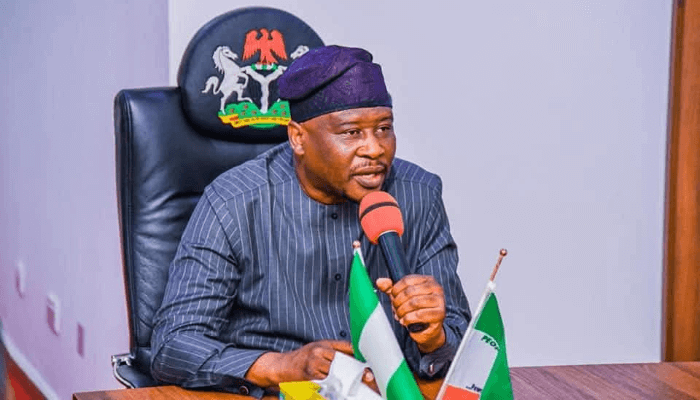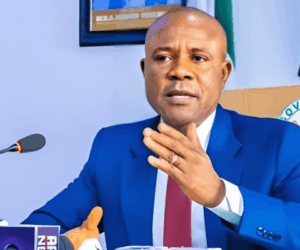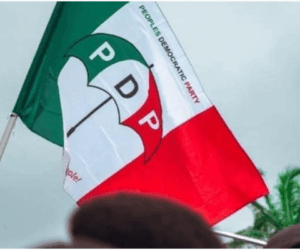As stakeholders are waiting for a bill to institutionalise government interventions to improve the life of the poor and vulnerable either affected by conflict or economically disadvantage has scaled through the public hearings stage in the Adamawa State House of Assembly.
The data shows that Northeast region has about 70 percent poverty rate especially Borno, Adamawa and Yobe states due to years of unending conflict and others factors. This is to says that 70 percent of the total population in the region are currently living below the poverty line and these also comes with diseases, displacement, restiveness, unemployment and others.
The World Bank had said despite the economic reforms of the Federal Government, 139 million Nigerians still live in poverty, this revelations was made known by its Country Director for Nigeria, Mathew Verghis, stated this at the launch of the Nigeria Development Update (NDU) report in Abuja recently where he warned that more needs to be done to ensure better living standards for Nigerians.
Read also: Health stakeholders push for 50% taxation on tobacco to cut consumption
Also, the data World poverty clock shows that Nigeria has the population of about 230,833,200 people. Unfortunately People living in extreme poverty 71,917,223 represent 31%; equally target escape rate is 24.88 people/min, while current escape rate is -2.06people/min; and over 3.4 million people are currently living in multidimensional poverty in Adamawa state.
Business Day reports stakeholders came together from reviewing and validating a social protection bill for Adamawa State have rounded off the process and okayed the bill for submission to the State House of Assembly with a vie to have a workable, strong mechanisms and framework bills that will support and provides safety net for less privileged people.
The Adamawa State Social Protection Draft Bill, being sponsored at the Assembly by the Majority Leader, Kate Mamuno, is expected to give birth to a law tailored to drastically raise the fortunes of the poor and other vulnerable people across the state.
At a public hea6on a social protection bill for Adamawa State, Kate Mamuno, in her welcome address explained that the bill, developed by the Supporting Sustainable Social Protection, Participation and Economic Resilience in Northeast Nigeria project implemented by GIZ through funding from the German Federal Ministry for Economic Cooperation and Development and the European Union.
The event was mobilized by the GIZ, included members of the State House of Assemblies from Borno and Adamawa, experts, academicians, representatives of non-governmental organisations, the civil society, faith- and gender-based organisations, and people from vulnerable groups.
She assured the stakeholders, they took an intensive look at the Adamawa State Social Protection Draft Bill and perfected its provisions, including provisions for significant reduction of poverty and vulnerability, as well as promotion of equity and inclusive growth through addressing inequalities among residents in the state.
Kate assured the participants projected other timelines within which they expect the bill to go fully through the Assembly to the expected signing by the State Governor, “I would do my part to ensure that the bill gets passed for executive assent. We will go back and look at the grail areas and ansure a workable document for the people in the state.
A right step toward Legislative Adoption
At the public hearing in Yola, lawmakers, development partners, and civil society representatives expressed strong support for the Bill, describing it as a transformational step toward ensuring that social protection becomes a legal right rather than a privilege.
Stakeholders reaffirmed that the Bill is designed to create a coordinated, transparent, and sustainable system capable of reaching those most in need—particularly women, children, returnees, and persons displaced by conflict or climate change.
According to the Executive Chairman of the Adamawa State Planning Commission, Mary Paninga, “This Bill is not just a document—it is a commitment to our people. It provides the legal and institutional framework that ensures every vulnerable citizen can access the support they need to live with dignity.”
A Model for the Northeast
Adamawa’s progress in developing and validating a Social Protection Bill sets a precedent for other states in the region. With technical support from SEPIN-SUSI, Borno State has also advanced its own policy and bill validation process, reflecting a growing commitment among northeastern states to embed social protection within their governance structures.
Abdulkarim Lawan, the Speaker, Borno State House of Assembly said the BAY states have suffered unimaginable challenges following a 16 period of Boko Haram insurgency which has compounded their woe in the areas of human capital development and social protection over a decade.
Represented by Ali Kotoko who led a delegation of other members of the House Assembly underscores the importance of a public hearing on the proposed bill to enact a Social Protection Law in Adamawa State.
He said,”Let me begin by commending the Adamawa State House of Assembly for taking this bold and timely step toward institutionalizing a legal framework that prioritizes the welfare and dignity of all citizens, particularly the poor and vulnerable. The vision to create inclusive, people-centered governance through social protection policies is not only commendable but also aligns with global best practices and sustainable development goals.
He added, “In Borno State, we understand, perhaps more than most, the critical importance of social protection—especially in the context of rebuilding lives, restoring livelihoods, and promoting social cohesion after years of conflict and displacement. We are currently in the process of developing our own Social Protection Law, and your leadership in organizing this forum provides a valuable learning opportunity for us.
He explained further, “We are particularly keen to draw from the experiences, consultations, and legislative insights gathered here as we continue to shape our own framework. The cooperation between our two Assemblies today demonstrates the spirit of regional collaboration, mutual learning, and shared commitment to improving the lives of our people.
He opined, “We recognize that effective social protection is not just about safety nets—it is about building resilience, empowering communities, and laying the groundwork for equitable development. We therefore urge all stakeholders present today to contribute constructively toward shaping a bill that will serve as a model for others.”He said.
Read also: Experts urged FG to adopt stakeholders approach in tackling misuse of AI in Nigeria
Kotoko assured the continued support and partnership of the Borno State House of Assembly as we all work towards building a more just, inclusive, and humane society.
The bill will provides inclusive platform for vulnerable
The initiative reinforces the broader vision of the SEPIN-SUSI Programme: to ensure that poverty reduction and resilience building are driven by strong, evidence-based systems that protect the most vulnerable and promote equitable development.
As Adamawa State moves toward final legislative passage of the Social Protection Bill, stakeholders remain optimistic that the law will transform the way the state addresses poverty, vulnerability, and inequality.
By institutionalizing social protection, the state government—supported by GIZ, the EU, and BMZ—is not only investing in systems but also in the human capital and dignity of its people.
In the words of the representative of the SEPIN-SUSI head of Programme, Ana Vinambres was represented by Mahamane Lawane, “This process marks a turning point. It demonstrates what is possible when government ownership, technical support, and citizen engagement converge for the common good.”
If passed and signed into law, Adamawa will become first state in northeast and one of the few states around the country with a social protection law. Although In the northern part of Nigeria, only Jigawa, Kaduna, Kano, and Zamfara have duly legislated social protection laws.









